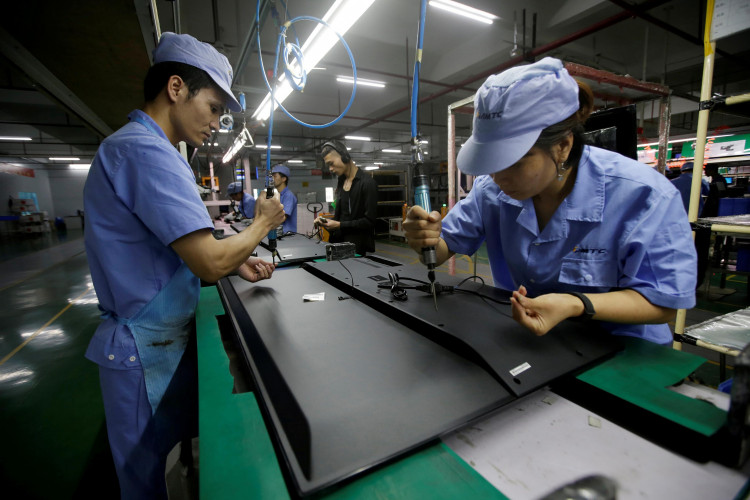The economy of China has shown great improvements in manufacturing output, consumption and market predictions, proving that the world's second biggest hub for finance and trade is strong amid uncertainties, analysts said.
China's industrial, retail, and foreign trade figures in the last two months made a steady climb. Based on the Purchasing Managers Survey, the country's market projections are up, National Development and Reform Commission spokesperson Meng Wei disclosed during a media briefing, Monday.
The mainland's value added factory figures soared nearly 7 percent in December from a year earlier, 0.7 percentage points better compared to the previous month.
The country's PMI numbers, which indicates market estimates around conditions in the manufacturing sector, remained intact at 50.2 for the second consecutive month of rally.
China's consumer price index was up 4.5 percent year-on-year for the month, but its growth was zero on month-per-month basis.
According to Meng, these figures are the result of a host of policy actions and show that the country's economy is robust and has a lot of "leeway," adding that as more transformative policies are carried out, the consistent and positive trend should continue.
For 2019, the country's economy grew by 6.1 percent year-on-year in total, hitting the current target goal of 6 to 6.5 percent for the period, the National Bureau of Statistics reported.
Meng reported that in 2019, China's gross domestic product per capita for the first time hit the $10,000 mark, a solid step in attaining a high-income economy.
However, Meng pointed out that China is still far behind developed nations, which on average maintains a GDP of over $30,000 per capita.
China's GDP advance for 2020 should be about 6 percent, Financial Research Center's chief researcher Tang Jianwei stressed.
China's economy this year, Tang said, is seen to remain steady, as external headwinds will subside in the next few months and the impact of the so-called "countercyclical macroeconomic policies" gradually emerge.
Chongqing Southwest Securities market strategist Zhang Wei noted that the China-US trade deal is crucial to attracting more foreign investors into China, helping foster competitive growth and enhancing the country's financial and trade capability.
The strengthening of China-US trade partnership is in line with Beijing's development platform: to promote more local market competition and fast-track the delivery of service and products, Meng stated.
Meanwhile, Meng called for more actions to boost China's business landscape to deepen reforms and welcome more foreign investments which will also speed up the country's economic momentum. China has trimmed down its negative list for three consecutive years, with the number of items down to 40 from 93.





